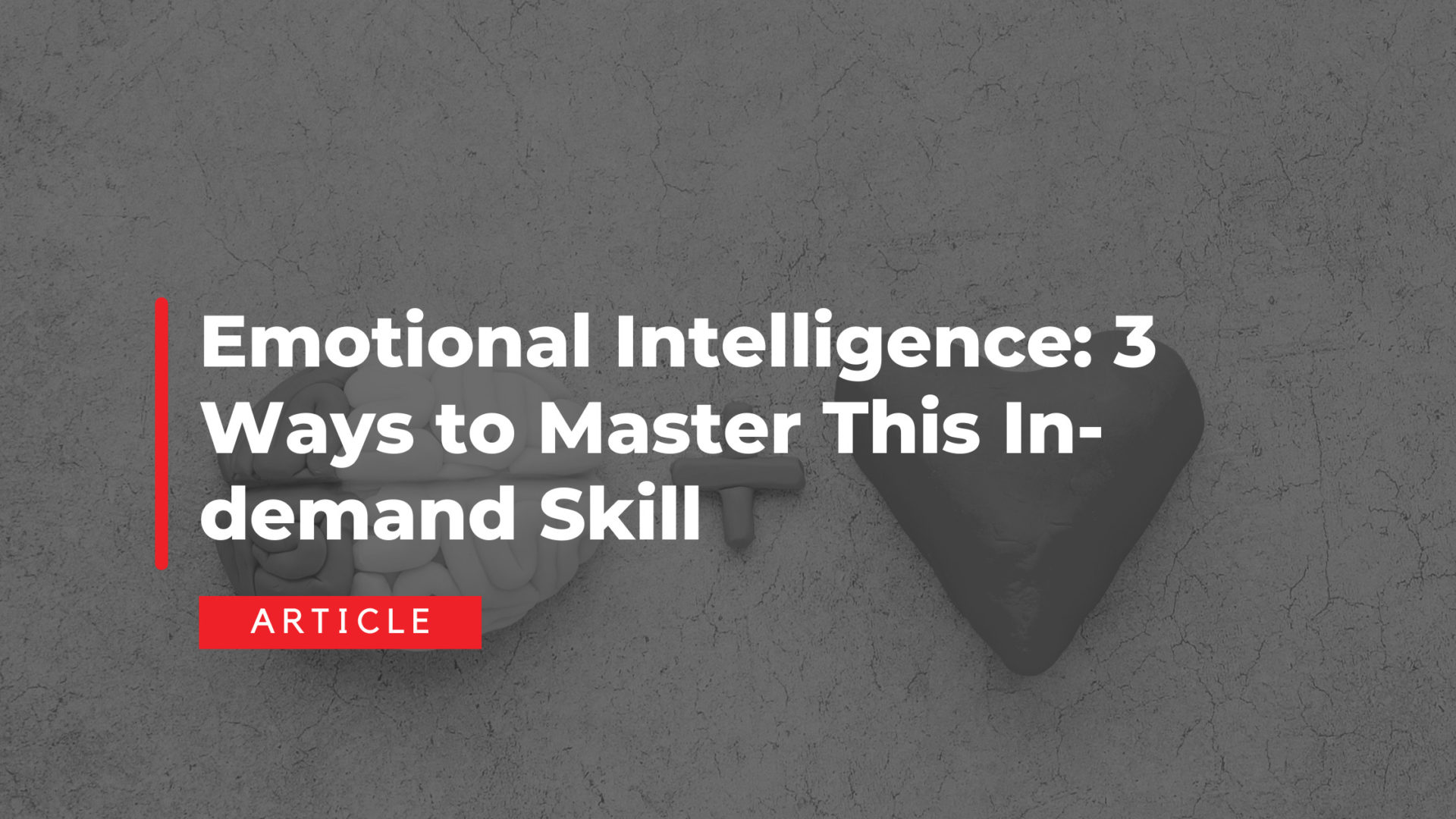
Emotional Intelligence: 3 Ways to Master this In-Demand Skill
We are living in a time of great technological transformation, and experts believe that human (soft) skills such as emotional intelligence (EI) still sit at the top of the list.
Work is moving in the direction of automation and AI, and job descriptions are changing to meet these changes. This will also call for new and regularly updated technical skills, and digital competencies. Skills such as EI will serve as a vital agent keeping teams moving forward as requirements to adapt and evolve continue.
EI is our ability to perceive our own emotions, as well as the emotions of others, and to manage them in a productive and healthy way. EI is a skill that can deeply benefit your life on both a personal and professional level, and you don’t need to study it at college or university.
Here are 3 practical ways to improve your emotional intelligence today:
1. Take responsibility for how you feel and behave
Your emotions and behaviours are your own and you’re the one responsible for them.
Other people don’t make you respond to them in a specific way, you feel emotions from something they do or say and respond on your own terms. This is all in your control, however most of us respond on auto-pilot before contemplating the consequences. We need to take responsibility for our behaviour and realise that even the most difficult situation can be turned around by right response and action. By taking responsibility for how you feel and behave, you can positively impact every area of your life. You have the power in your hands.
2. Create the right environment
Don’t let a day go by where you don’t reflect upon what is going right in your life and on all the things you are grateful for. We can get so caught up on the negatives.
Creating a positive environment not only improves your quality of life, but it has the power to impact the lives of those around you both on a personal and professional level. When you are in a positive ‘flow state’ it is so much easier to face life and all of its tasks and challenges with good perspective, calm and ‘growthfulness’.
3. Practise empathy with yourself and others
Practising empathy is an attempt to understand why someone feels or behaves in a certain way and being able to communicate that understanding to them. It applies to ourselves and other people, and practicing this ability will improve your EI.
The easiest place to start is with yourself. When you feel yourself responding or acting in a specific way to a situation or person start to ask yourself why you feel and behave like this. Pay careful attention to your triggers and emotions as they can tell you a lot about yourself, and how to act with more patience, compassion and empathy. Now extend what you learn to others you come into contact with. Try to understand their life experiences, fears, challenges and why they may act or respond in a specific way.
With massive change in the workforce and the way we do things, so the need to develop a strong level of EI. Change brings challenges which can be very difficult for people in many ways. By developing yourself you can offer so much to your team and your human skills such as EI will be seen as an asset by your fellow team members, client or employer.



